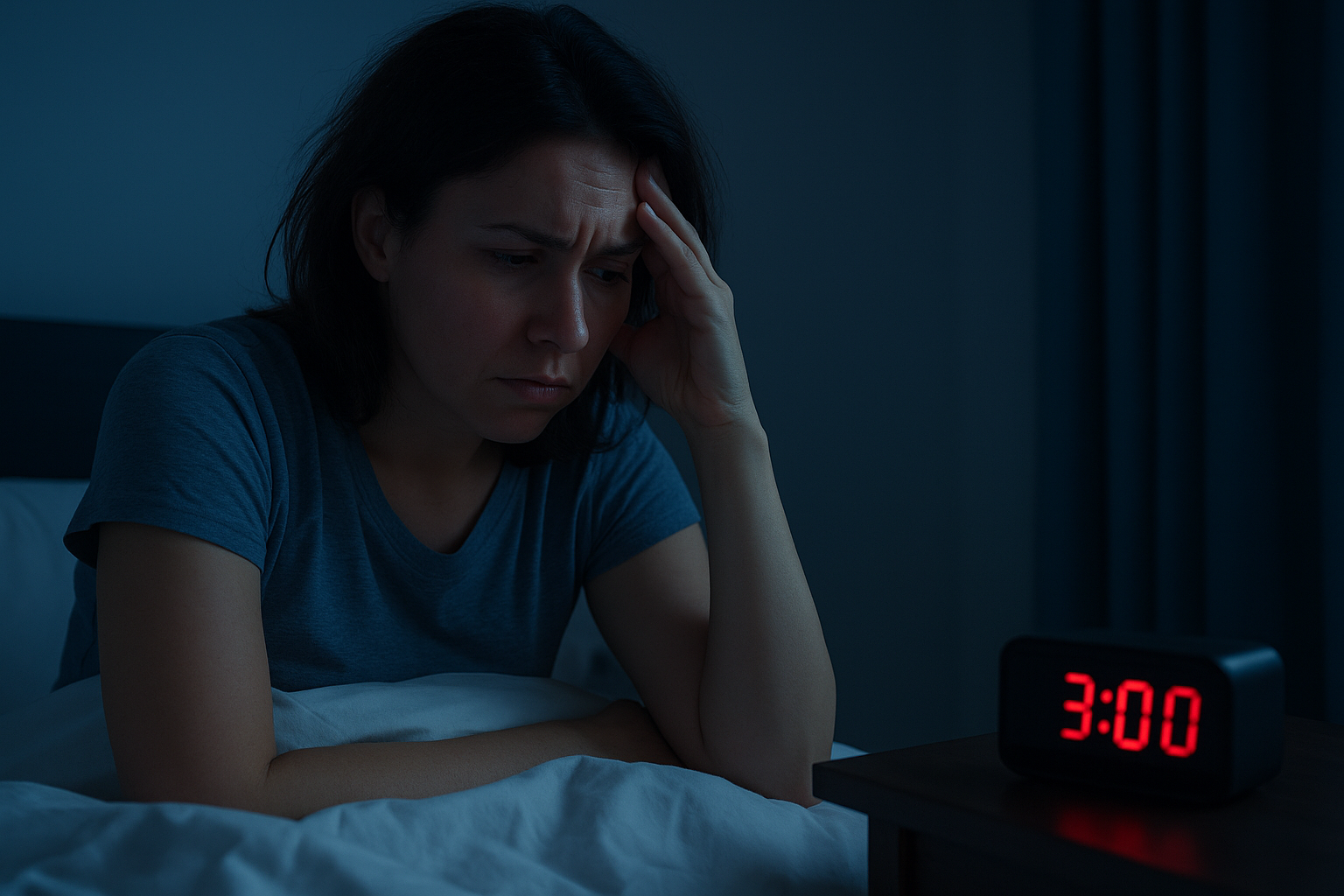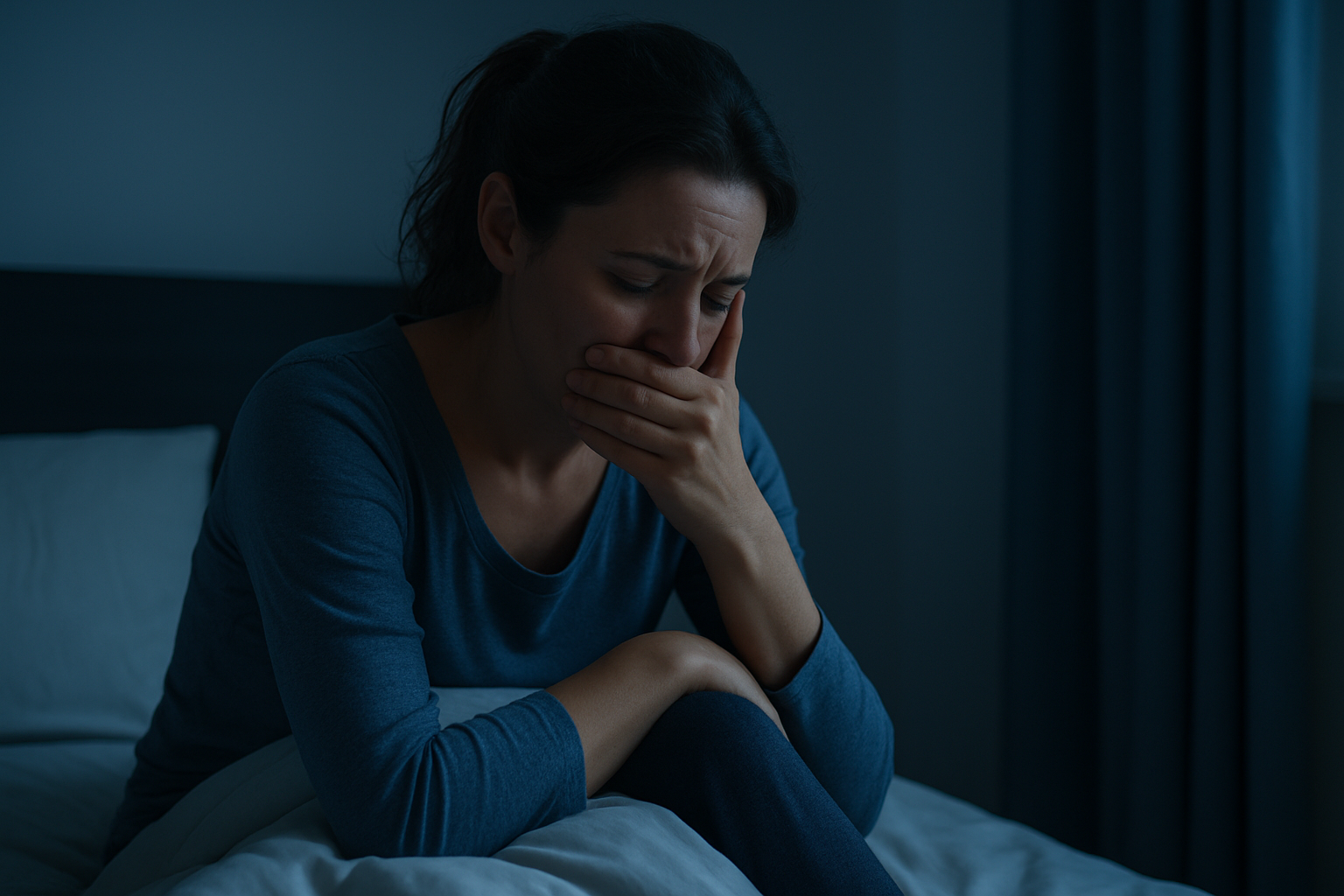
Waking up in the middle of the night can be deeply frustrating - especially when it becomes a regular pattern around the same time, like 3am. Known as “3am insomnia,” this experience is more common than many realize and can often point to underlying physiological, psychological, or environmental factors.
In this article, we’ll explore the science behind nighttime awakenings, common triggers, and strategies to promote uninterrupted sleep. We’ll also integrate answers to common questions and address popular remedies like sleep gummies and calming nighttime drinks.
To understand why waking up in the middle of the night happens, we need to look at sleep architecture. Human sleep progresses through cycles—light sleep, deep sleep, and REM – roughly every 90 minutes. Most people experience 4 – 6 cycles per night, with REM stages becoming longer toward morning.
Awakenings during these transitions are natural and often go unnoticed. However, when the brain is more alert or stressed, the body may fully wake – especially during lighter stages of sleep. This becomes particularly noticeable around 3am, when cortisol (the stress hormone) begins to rise in preparation for the day.
3am insomnia isn’t just anecdotal. According to circadian biology, the body’s internal clock shifts hormonal activity during the early morning hours. Cortisol starts to rise around this time, especially if you’re under chronic stress, experiencing anxiety, or consuming stimulants (like caffeine or alcohol) too close to bedtime.
Additionally, a drop in blood sugar overnight – common in people with fluctuating glucose regulation – can stimulate adrenaline and cortisol production, waking you up abruptly.

Cognitive activity plays a powerful role in 3am insomnia. Even if the initial awakening is biological, what happens next is often mental. If you’re prone to anxiety, your brain might engage in problem-solving or worry loops when it should be resting. The phenomenon known as “nocturnal rumination” can quickly turn a brief awakening into an hours-long bout of sleeplessness. Interestingly, studies show the brain is less rational at night, often making worries seem more catastrophic.
This is a key reason why people search questions like “Why do I worry when I wake up in the middle of the night?”
Your surroundings and habits can significantly influence whether a nighttime awakening becomes a full interruption. Factors include:
Light exposure (especially from phones or alarm clocks)
Room temperature and noise
Alcohol or caffeine intake
Late-night eating
Irregular sleep schedules
Even certain “healthy” habits like working out late or drinking large amounts of water before bed can lead to waking up in the middle of the night to urinate.
If waking up at 3am every night is persistent, it might signal a deeper sleep disorder:
Sleep apnea: Breathing interruptions can trigger micro-awakenings.
Restless leg syndrome: Causes involuntary movement that disrupts sleep.
Insomnia disorder: Chronic difficulties falling or staying asleep.
Depression: Often linked to early-morning awakenings.
A proper diagnosis may require a sleep study or consultation with a sleep specialist.
Several science-based strategies can reduce or eliminate waking up in the middle of the night:
Cognitive Behavioral Therapy for Insomnia (CBT-I): The gold standard treatment for chronic insomnia.
Sleep hygiene improvements: Regular schedules, cool dark rooms, and screen limitations.
Stress-reduction techniques: Deep breathing, meditation, and progressive muscle relaxation.
Nutritional support: Avoiding sugar, caffeine, and alcohol late in the day.
Some individuals turn to supplements. You might wonder, Do Sleep Gummies Really Work? While the answer varies, those with melatonin or magnesium can help support the body’s natural sleep cycle, though results often depend on dosage and timing.
Natural solutions include drinks that help you sleep at night, such as warm milk, tart cherry juice, or herbal teas containing chamomile or valerian root. These support relaxation and may reduce wakefulness if taken consistently.
If you’ve woken up and can’t get back to sleep, resist the urge to check your phone. Instead, try the 4-7-8 breathing method, progressive muscle relaxation, or visualization techniques. These may help you fall asleep fast – sometimes in just 5 minutes.
It may seem like there’s no reason, but your sleep cycle, stress hormones, blood sugar, or even room environment could be causing the interruption.
Nighttime worry often stems from the brain’s reduced ability to reason during sleep-deprived states, making anxiety feel more intense.
This may suggest a pattern tied to circadian rhythm disruption, hormone fluctuations, or an underlying sleep disorder.
This specific timing often correlates with the body’s cortisol cycle or could reflect stress, anxiety, or even poor sleep hygiene.